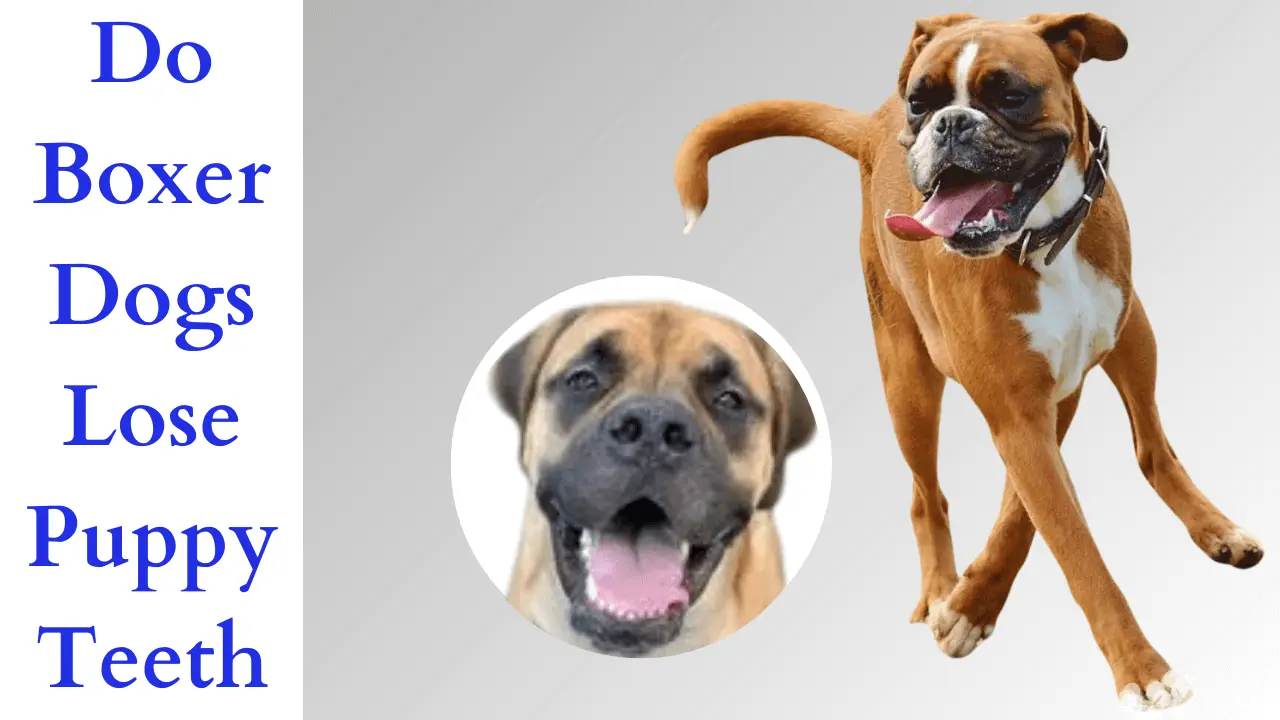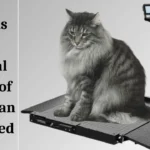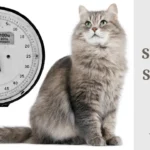Welcoming a boxer puppy into the house scars the start of an exciting journey filled up with joy, love, and a good amount of puppy kisses. As the furry friend grows you will witness various milestones from learning instructions to perfecting brand new teeth tricks.
However this article, we will tell you that do Boxer Dogs lose Baby Teeth or not. One aspect of your boxer’s development that often goes unnoticed until it takes place involves losing infant teeth. In the event that you are a first-time boxer parent or just interested in this all-natural occurrence, you are set for a goody.
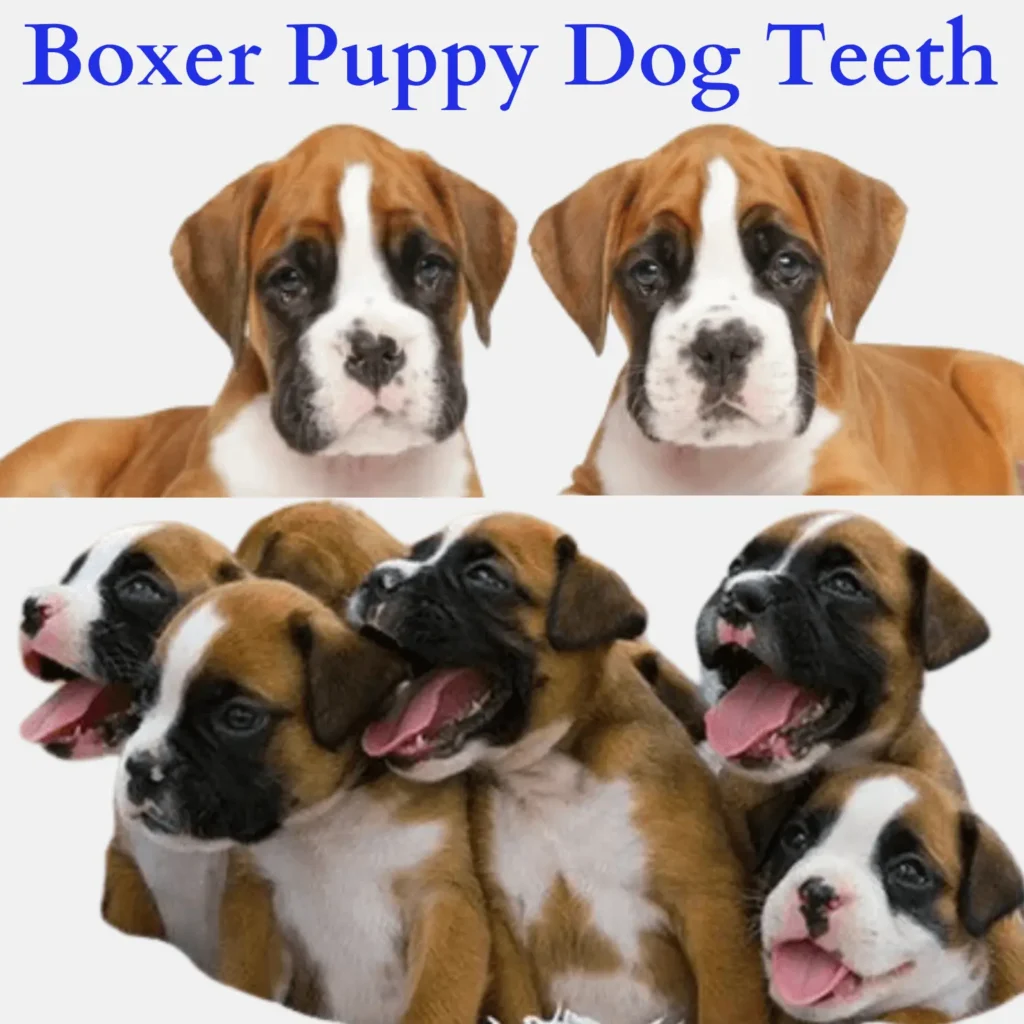
Inside extensive guide, we will delve into the field of boxer puppy dental hygiene, examining the particulars of when and just how boxer dogs lose their child teeth, what to expect during this change, and how it is possible to ensure ideal oral health for the beloved partner. So, allows attempt this enlightening journey collectively, unraveling the mysteries behind your boxer puppy’s adorable smile.
- Understanding the navigation of Boxer Puppy Teeth:
- The Boxer Puppy Teething Process:
- Recognizing of Do Boxer Dogs Lose Baby Teeth:
- Supporting Your Boxer baby through Teething:
- Types of Boxer Baby Dog Teeth:
- Number of Teeth of Boxer Baby Dogs Age by Age:
- Dental problems and its care:
- Conclusion:
- Frequently Asked Question:
Understanding the navigation of Boxer Puppy Teeth:
Before diving into the details of boxer puppy dental hygiene it’s essential to grasp the basic principles of canine dental care structure. Like individual infants dogs have two units of teeth 1st main (baby) teeth and 2nd permanent (adult) teeth. Boxer puppies are created without teeth but around two to one month old they begin to develop their infant teeth also known as deciduous teeth.
These temporary teeth offer their function during puppyhood, allowing them to explore the planet and eat a meal plan suitable for their particular phase of development. Boxer puppies routinely have 28 deciduous teeth including incisors, canines, and premolars.
These infant teeth perform a crucial role in the early stages of boxer’s life, assisting activities such medical, chewing on toys, and socializing with littermates. But as the boxer puppy is growing, their infant teeth will gradually cave in for their permanent teeth in a process referred to as teething.
The Boxer Puppy Teething Process:
Teething is an all-natural and inevitable stage in a boxer puppy’s life just like it really is for real human babies. This procedure requires the gradual replacement of baby teeth with permanent teeth, signaling the change from puppyhood to adulthood. Boxer puppy Teething begins around three to four months old and certainly will last until 6 to 8 months, although individual variants may possibly occur.
Throughout the teething procedure you could notice particular behaviors and real alterations in your boxer puppy. Typical signs of teething feature increased chewing behavior, drooling, irritability, and mild disquiet. Your puppy may seek relief by chewing on toys, furnishings, and or your fingers, once the force helps relieve the discomfort associated with teething.
As your boxer puppy’s permanent teeth commence to emerge, you may observe the gradual shedding of these child teeth. This technique is vital for keeping dental health and making sure correct alignment associated with the adult teeth. But necessary to monitor your pup’s teething development closely and offer proper help and guidance.
Recognizing of Do Boxer Dogs Lose Baby Teeth:
Identifying whenever your boxer puppy starts losing their baby teeth is an exciting yet important part of their particular development. Whilst timing can vary somewhat from a single puppy to some other, many boxer puppies commence to lose their infant teeth around 4 months old. However, some puppies may begin dropping their child teeth since three months while some might take a little longer to begin with the process.
1st sets of infant teeth to lose are typically the incisors followed by the canine teeth and premolars. You may notice your puppy’s gums becoming inflamed or distended since the permanent teeth drive through, causing the infant teeth to loosen and in the end fallout. It’s important to permit the puppy teeth fallout obviously, as wanting to take them off prematurely can cause discomfort or problems for the growing adult teeth.

As your boxer puppy dogs manages to lose their child teeth, you may find these tiny treasures spread around your home or notice all of them while playing or grooming your pup. Although it’s exciting to collect these souvenirs of puppyhood, it’s necessary to give attention to supplying good care and help to make certain a smooth change to adult teeth.
Supporting Your Boxer baby through Teething:
Teething could be a difficult time both for puppies and their particular proprietors but there are many ways you can help relieve discomfort and advertise healthy oral development inside boxer puppy:
Provide Appropriate Chew Toys:
Offering a number of safe and durable chew toys often helps suit your puppy’s normal desire to chew while relieving teething vexation. Try to find toys specifically designed for teething puppies such as for example rubberized chew toys or frozen chew snacks.
Practice Gentle Dental Hygiene:
Introducing your boxer puppy to regular dental care habits in early stages can set the foundation for lifelong of good teeth’s health. Start by gently brushing your pup’s teeth with a dog-specific brush and tooth paste created for puppies. Slowly boost the regularity of cleaning as your puppy expands much more used to the method.
Provide Cold or Frozen Treats:
Winter enables numb your puppy’s sore gums and offer short term relief from teething disquiet. Start thinking about offering frozen goodies, particularly ice cubes or frozen fresh fruits, for the puppy to nibble on under direction.
Destructive Chewing Behavior:
While chewing is an all-natural behavior for teething puppies, it’s necessary to supervise your pup is chewing practices assuring they are maybe not ingesting harmful objects or substances. Redirect unacceptable chewing behavior towards approved chew toys and provide good reinforcement for appropriate chewing.
Schedule Regular Veterinary Check-ups:
Regular visits toward veterinarian are essential for monitoring your boxer puppy’s health and development including their particular dental health. Your veterinarian could offer personalized guidance and recommendations based on your puppy’s particular needs and phase of development.
Types of Boxer Baby Dog Teeth:
Understanding the kinds of teeth present in boxer child puppies is really important for acknowledging their dental care teeth needs and guaranteeing good care and upkeep as they grow and change to adulthood. Here you will find the kinds of teeth present in boxer infant dogs:
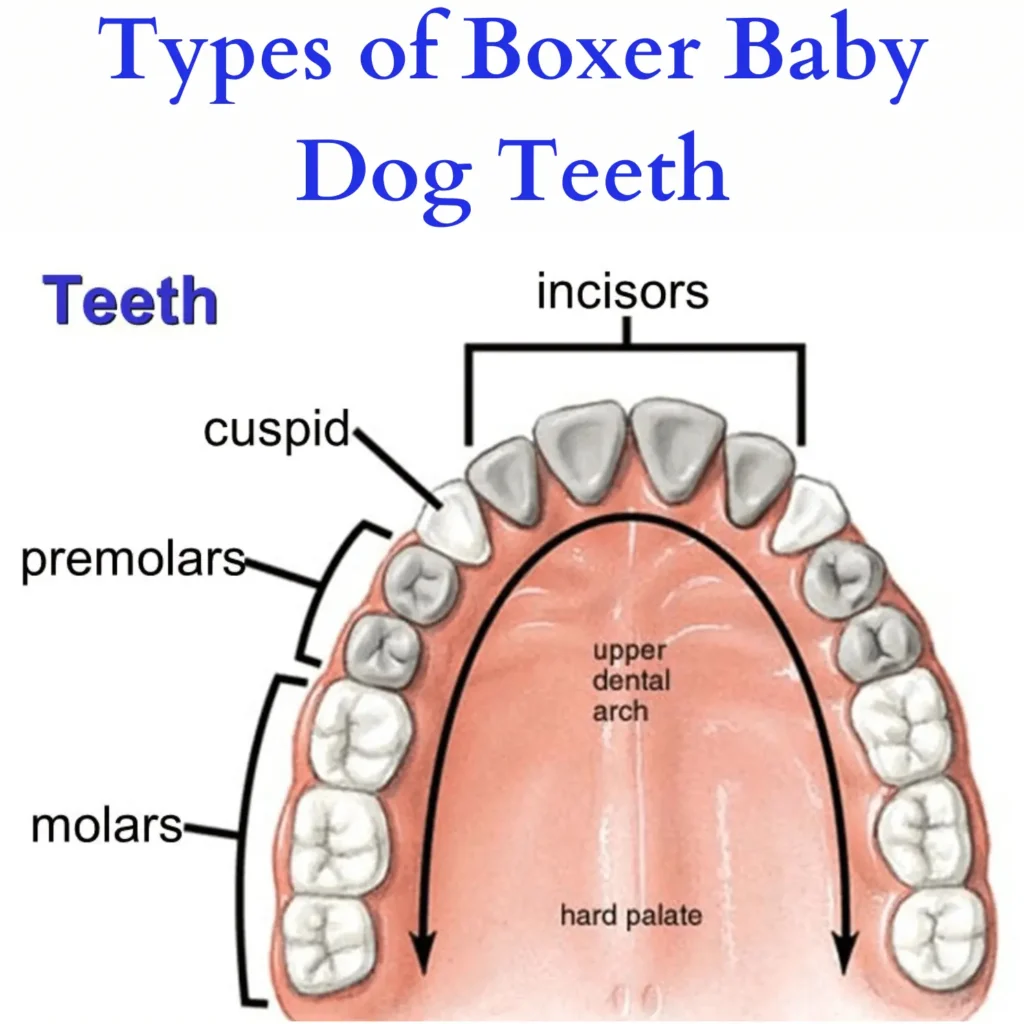
Incisors:
- Boxer puppies have actually a set of 12 incisors.
- These teeth are located at the front of mouth both on top and reduced jaws.
- Incisors are used for grasping and brushing meals.
Canines:
- Boxer puppies have an overall total of 4 canine teeth also called fangs.
- They are the sharp, pointed teeth found on either region of the incisors.
- Canines can be used for ripping and holding onto items.
Premolars:
- Boxer puppies have some 12 premolars with 6 on each region of the top and reduced jaws.
- These teeth tend to be situated behind the canines.
- Premolars aid in grinding and shearing food into smaller pieces.
Molars:
- Boxer puppies typically don’t have molars in their baby teeth set.
- Molars are larger flatter teeth found at the back of the mouth in adult puppies.
- These are typically used for smashing and grinding meals through the chewing process.
Deciduous Teeth:
- Every one of the aforementioned teeth in boxer puppies are believed deciduous or baby teeth.
- These short-term teeth at some point be changed by permanent adult teeth.
- Deciduous teeth play a crucial role in the early development and development of a boxer puppy jaw and oral structure.
Number of Teeth of Boxer Baby Dogs Age by Age:
It is important to note that each variations may possibly occur many puppies may develop teeth slightly earlier on or later than the others. Monitoring your boxer puppy dental care development and providing proper treatment such as regular brushing and dental care check-ups, will help guarantee their dental health and wellbeing as they grow. Right here is a breakdown regarding the amount of teeth in boxer infant dogs at different phases of age:
Newborn to 2 weeks:
- Boxer puppies are born without teeth during this stage.
- They rely solely on nursing for nourishment and sustenance.
2 to 3 weeks:
- Boxer puppies start establishing their deciduous (baby) teeth during this period.
- Usually, no teeth tend to be noticeable during the first two weeks but by the end associated with the 3rd week the incisors may begin to emerge.
3 to 4 weeks:
- By the third to 4th week many boxer puppies will have an entire set of incisors.
- At this time, they might have an overall total of 6 incisors, 2 from the upper jaw and 4 in the reduced jaw.
4 to 6 weeks:
- Boxer puppies continue to develop their infant teeth because of the introduction of canines and premolars.
- By the end of 6th few days, many puppies could have a total of 12 incisors, 4 canines, many premolars.
6 to 8 weeks:
- At around 6 to 8 weeks of age, boxer puppies typically have a full set of deciduous teeth.
- This includes 12 incisors, 4 canines, and 12 premolars, for a total of 28 baby teeth.
Dental problems and its care:
It’s important to be proactive in caring for your boxer oral health by providing regular dental hygiene at home and scheduling routine veterinary dental care check-ups. Boxer dogs, like most other type puppy, can be vulnerable to numerous dental care issues if good care isn’t taken. Here are some common dental care issues that boxer dogs may deal with methods for their attention:
Plaque and Tartar Build-Up:
- Plaque is a gluey film of germs that types regarding the teeth which could harden into tartar or even removed.
- The build-up of tartar can cause further problems like gum condition, tooth damage, and bad air.
- Care: Regular brushing with a dog-specific toothbrush and tooth paste, with dental chews or toys designed to advertise oral health, often helps avoid plaque and tartar accumulation. Expert dental care cleanings by a veterinarian are often required to pull persistent tartar buildup.
Gum Disease (Gingivitis and Periodontitis):
- Gum disease is inflammation of this gum tissue caused by germs in plaque and tartar.
- If remaining untreated, gum condition can progress to periodontitis a far more severe problem that will result in loss of tooth and problems for the surrounding areas.
- Care: Along with regular cleaning, offering dental care treats or liquid additives that help reduce plaque and tartar can help in preventing gum disease. Also, arranging routine dental care check-ups with a veterinarian enables recognize and address very early signs and symptoms of gum illness before they progress.
Tooth Fractures and Wear:
- Boxer dogs are notable for their particular lively nature which can occasionally lead to tooth fractures or use. Particularly in puppies that enjoy chewing on tough things.
- Fractured teeth are painful and may require removal or other dental processes to stop additional problems.
- Care: eliminate offering your boxer difficult things such as for example bones or antlers to nibble on as these can damage their teeth. Go for softer chew toys or dental chews created specifically to advertise oral health. Regular veterinary examinations will help detect enamel cracks early and stop prospective problems.
Malocclusion (Misalignment of Teeth):
- Malocclusion refers to the misalignment regarding the teeth that may trigger issues with biting, chewing, and general dental health.
- Boxer puppies are predisposed to certain types of malocclusion because of the genetics or facial structure.
- Care: Early detection of malocclusion is essential for stopping complications like enamel wear, gum illness, and trouble eating. Regular dental care check-ups will help recognize malocclusion and figure out appropriate treatment options that may consist of orthodontic correction or extraction of difficult teeth.
Oral Tumors and Growth Abnormalities:
- Boxer puppies have reached an increased chance of building dental tumors including harmless growths such as epulis and cancerous tumors including oral melanoma.
- These tumors trigger discomfort, trouble eating, and other teeth’s health dilemmas or even addressed immediately.
- Care: Regular oral exams by a veterinarian are crucial for detecting any abnormalities or growths inside boxer puppy lips. Early analysis and treatment of oral tumors can notably enhance the prognosis and total well-being for affected puppies.
Also Read: https://thepetlive.com/female-boxer-dogs-fighting/
Conclusion:
The entire process of losing child teeth is an all-natural and unavoidable part of a boxer puppies development trip. Comprehension when and just how boxer dogs lose their infant teeth, along with providing appropriate support and care during teething process, is really important for marketing healthy oral development and ensuring your puppy overall well-being.
As an accountable boxer parent, it’s vital to continue to be aware and proactive in monitoring your puppies teething development and handling any concerns or vexation they might experience along the way. By fostering a confident and supportive environment, it is possible to help your boxer puppy transition seamlessly from puppyhood to adulthood with a bright and breathtaking laugh to exhibit for this. Therefore, accept this milestone with open hands and celebrate each step of one’s boxer puppy’s trip to becoming a happy, healthier, and thriving partner.
Frequently Asked Question:
Do Boxers lose their baby teeth?
Yes, like all puppies Boxers do drop their baby teeth because they develop. This process typically begins around four to six months of age and continues until obtained their particular complete collection of person teeth.
What age do Boxers drop their particular teeth?
Boxers usually begin dropping their child teeth around four to six months old. Once they achieve 5 to 9 months, many Boxers have actually shed all their infant teeth and have their particular person set.
Why is my Boxer dropping teeth?
Boxer’s puppies drop their teeth to create space for his or her adult teeth. This natural procedure permits appropriate positioning and improvement the person dentition, ensuring an excellent mouth as they mature.
Do Boxer puppies have actually bad teeth?
Boxer dogs are prone to dental dilemmas like plaque accumulation and gum condition if correct dental treatments is ignored. An everyday cleaning, dental check-ups, and providing the correct chomping toys will preserve their particular good oral health.
Do I need to worry if my puppy features lost an enamel?
Losing just one tooth may well not continually be cause for instant issue, particularly when it’s a child tooth. However, if an adult enamel is lost or if perhaps you can find signs of oral pain or vexation, it’s far better talk to a veterinarian.
Must I be a worried about my puppy loose teeth?
It’s natural for puppies to get rid of their particular baby teeth as they transition to adulthood. However, if there are complications particularly retained deciduous teeth or signs and symptoms of illness, it’s better to look for veterinary attention.
Do puppies feel discomfort whenever losing teeth?
While many puppies may go through mild disquiet or irritation during the teething process, it’s usually not extreme enough to trigger significant discomfort. Supplying appropriate chew toys and dental hygiene will alleviate vexation.
